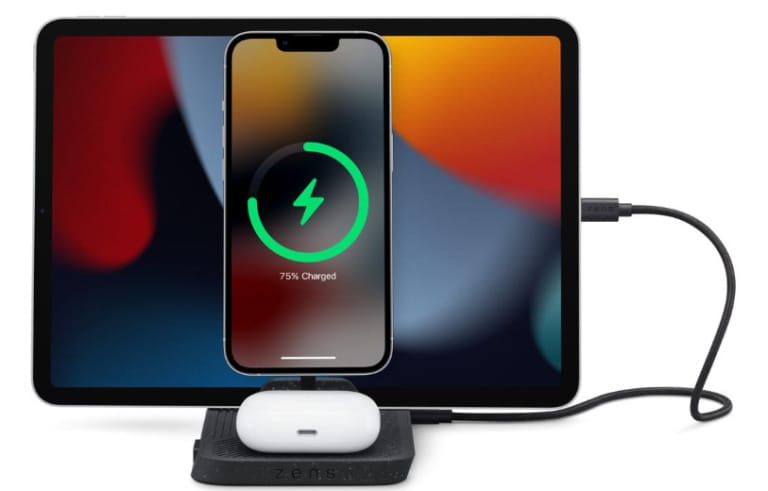
If you’ve ever wondered which type of headphones is safer to use—wired or wireless—then this article is for you! Are wired headphones safer than wireless? It’s a question that many people have been asking. In this article, we’ll explore the potential dangers of both wired and wireless headphones and shed some light on which option may be better for your safety and well-being. So let’s dive in and find out the truth!
When it comes to headphone safety, there are a few factors to consider. Firstly, we have to examine the potential health risks associated with wireless headphones. While wireless technology provides great convenience and freedom, there are concerns about the electromagnetic radiation emitted by Bluetooth devices. On the other hand, wired headphones don’t emit any such radiation, making them a seemingly safer alternative.
However, safety isn’t just about radiation. Another important aspect is the risk of physical accidents. With wired headphones, you have the risk of getting tangled in the wires and accidentally pulling your device or causing injury. On the other hand, wireless headphones offer freedom of movement without the risk of tripping or being constrained by wires. So are wired headphones safer than wireless?
Are Wired Headphones Safer Than Wireless?
In the ongoing debate about headphone safety, the question arises: Are wired headphones safer than wireless? While both types have their pros and cons, wired headphones are generally considered safer due to lower levels of electromagnetic radiation exposure.
Additionally, wired headphones do not require Bluetooth connectivity, reducing potential health risks associated with constant wireless signals. However, it’s important to note that the overall safety of headphones depends on several factors including usage and volume levels.
Science Behind Wireless Headphones
Wireless headphones work by using Bluetooth technology, which allows for the transmission of audio signals without the need for physical wires. This wireless communication occurs through radio waves, which are a form of electromagnetic radiation. While radio waves are generally considered to be safe, concerns have been raised about the potential health effects of long-term exposure to Bluetooth radiation.
Bluetooth radiation is classified as non-ionizing radiation, which means that it does not have enough energy to remove electrons from atoms or molecules. Unlike ionizing radiation (such as X-rays and gamma rays), which can damage DNA and potentially cause cancer, non-ionizing radiation is generally considered to be safe.
However, some studies have suggested that prolonged exposure to non-ionizing radiation may have certain health risks, particularly in terms of its impact on brain function and fertility.
It’s important to note that the scientific community has not reached a consensus on the potential health risks of Bluetooth radiation. Some studies have found no significant negative effects, while others have highlighted concerns. As research continues in this field, it is important to consider the available evidence and make informed decisions about headphone usage.
Wired Headphones: A Safer Option?
While the potential health risks associated with wireless headphones are still being studied, many experts consider wired headphones to be a safer option. One of the main reasons for this is that wired headphones do not emit any type of radiation. Without the need for wireless transmission, wired headphones eliminate the potential exposure to Bluetooth radiation altogether.
In addition to reducing concerns about radiation, wired headphones also offer better sound quality. The direct connection to your device ensures a stable and reliable audio signal, resulting in a clearer and more immersive listening experience. Wired headphones also tend to have lower latency, meaning that there is less delay between the audio being produced and reaching your ears. This makes them ideal for activities that require precise audio synchronization, such as gaming or watching videos.
Furthermore, wired headphones do not require batteries or charging. This eliminates the need to constantly monitor and maintain battery life, making them a convenient choice for long listening sessions or travel. Additionally, wired headphones are generally more affordable than their wireless counterparts, providing a cost-effective option without compromising on audio quality.
The Convenience of Wireless Headphones
While concerns about radiation and sound quality may make wired headphones seem like the better choice, wireless headphones have their own set of advantages that make them an appealing option for many users.
One of the main benefits of wireless headphones is their convenience. Without the restriction of wires, wireless headphones provide greater freedom of movement, allowing you to multitask or exercise without the risk of getting tangled in cables.
Wireless headphones also offer compatibility with a wide range of devices, including smartphones, tablets, and computers. With Bluetooth technology becoming increasingly prevalent, the majority of modern devices are equipped with this feature, making wireless headphones a convenient choice for seamless connectivity.
Additionally, many wireless headphones are designed with advanced features such as touch controls, noise cancellation, and voice assistants. These features enhance the overall user experience and provide additional functionality that may not be available with wired headphones.
Factors to Consider
When deciding between wired and wireless headphones, there are several factors to consider. The potential health risks associated with wireless headphones, although not definitive, may be a concern for some individuals. If you are particularly sensitive to radiation or prefer to err on the side of caution, wired headphones may be the safer choice for you.
On the other hand, if convenience, versatility, and enhanced features are more important to you, wireless headphones may be the better option. It is worth noting that there are steps you can take to minimize potential health risks, such as limiting your exposure to wireless signals and taking regular breaks from headphone use.
Ultimately, the decision between wired and wireless headphones comes down to personal preference and priorities. Assess your individual needs and considerations before making a choice. Whether you opt for the safety of wired headphones or the convenience of wireless ones, the most important thing is to enjoy your listening experience while keeping your well-being in mind.
Frequently Asked Questions
Wired and wireless headphones both have their advantages, but when it comes to safety, people often wonder which type is safer. Here are some common questions about the safety of wired and wireless headphones:
1. Are wired headphones safer than wireless ones?
While both wired and wireless headphones are generally safe to use, wired headphones may have a slight advantage when it comes to safety. This is because wireless headphones emit low levels of electromagnetic radiation, which some people may be concerned about. However, the levels of radiation emitted by wireless headphones are considered to be within safe limits, and studies have not found any conclusive evidence linking them to harmful health effects.
On the other hand, wired headphones do not emit electromagnetic radiation at all, as they transmit audio signals through physical wires. This may give some people peace of mind regarding potential health risks. Ultimately, the difference in safety between wired and wireless headphones is minimal, and both types are generally considered safe for everyday use.
2. Can wireless headphones cause cancer?
There is currently no scientific evidence to suggest that using wireless headphones can cause cancer. The low levels of electromagnetic radiation emitted by wireless headphones are not considered to be carcinogenic, meaning they do not have the potential to cause cancer. Numerous studies have been conducted to assess the safety of wireless technologies, including Bluetooth used in wireless headphones, and they have not found any direct link to cancer.
However, it is important to note that research in this area is ongoing, and it is always a good idea to follow safety guidelines provided by manufacturers. If you have concerns about the potential health risks of using wireless headphones, you can consider using wired headphones as an alternative.
3. Do wireless headphones pose a risk to hearing?
Both wired and wireless headphones can potentially pose a risk to your hearing if used improperly. The key factor is the volume level at which you listen to audio, rather than the type of headphones you use. Listening to loud music or sounds through headphones, whether wired or wireless, can damage your hearing over time.
To protect your hearing, it is recommended to follow the 60/60 rule: listen at no more than 60% of the maximum volume for no longer than 60 minutes at a time. Additionally, choosing headphones with noise-cancellation features can help reduce the need to increase the volume to block out external noise, further protecting your hearing.
4. Are there any potential health risks from using wired headphones?
When used properly, wired headphones do not pose any significant health risks. However, it’s important to consider the risk of physical injuries associated with wired headphones. The cord of wired headphones can get tangled, leading to tripping hazards or accidentally pulling the headphones and potentially causing harm to your ears or the device they are connected to.
To prevent accidents, it is advisable to store wired headphones properly when not in use and to be cautious when using them during physical activities or when in motion. Additionally, choosing wireless headphones or opting for wireless alternatives, such as Bluetooth earbuds, can eliminate the risk of injuries related to tangled cords.
5. Are there any potential health risks from using wireless headphones during pregnancy?
There is no conclusive evidence to suggest that using wireless headphones during pregnancy poses any specific health risks. However, as a precautionary measure, some healthcare professionals recommend limiting exposure to electromagnetic radiation during pregnancy. This would include using wired headphones instead of wireless ones.
It is important to note that the levels of electromagnetic radiation emitted by wireless headphones are considered to be very low and well below the safety limits. Nonetheless, if you have concerns or are unsure, it is always best to consult with your healthcare provider for personalized advice tailored to your specific situation.
Wired headphones and wireless headphones both have their advantages and potential risks. Wired headphones offer a reliable connection and consistent sound quality, but they can also get tangled and restrict your movement. On the other hand, wireless headphones provide more freedom of movement and convenience, but they may pose a slight risk of exposure to electromagnetic radiation.
When it comes to safety, both types of headphones are generally considered safe to use. However, to minimize potential risks, it is recommended to keep the volume at a moderate level, take regular breaks, and choose headphones with good shielding. Ultimately, the choice between wired and wireless headphones depends on personal preference and the specific needs of each individual.
Whether you prefer the reliability of wired headphones or the convenience of wireless ones, the most important thing is to use them responsibly and enjoy your music without harming your ears or overall health.






